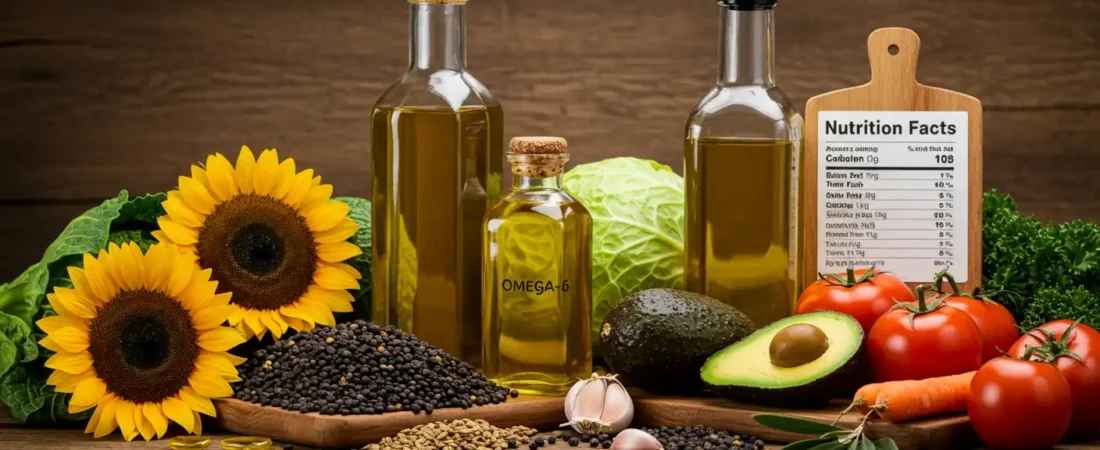Introduction
Seed oils have become a lightning rod in modern health debates. Once celebrated for their heart-friendly fats, these oils are now facing growing scrutiny. The seed oils health effects conversation is fueled by concerns about inflammation, omega-6 content, and how they compare to traditional fats like olive oil or butter. But what does the science actually say? In this article, we’ll break down the evidence, separate myths from facts, and help you make informed decisions.
Seed Oils Health Effects – What Science Says
Such as sunflowerseed oil and black caraway oil, are extracted from various plant seeds and are commonly used in home cooking, restaurants, and processed foods. Their health effects depend largely on their composition and how they’re processed.
Omega-6 Fatty Acids Friend or Foe?
Seed oils are rich in omega-6 fatty acids, which are essential fats but can be harmful when consumed in excess. A high omega-6 to omega-3 ratio has been linked to inflammation, potentially contributing to chronic diseases such as heart disease and obesity (Harvard T.H. Chan School of Public Health).
However, not all studies agree. According to a 2020 review published in the American Journal of Clinical Nutrition, moderate consumption of omega-6 fats can be neutral or even beneficial when part of a balanced diet.
The Problem with Highly Processed Oils
Manufacturers typically extract commercial seed oils using high heat and chemical solvents like hexane. This can degrade beneficial nutrients and create oxidized fats, which may contribute to inflammation and oxidative stress.
Cold-Pressed vs. Refined
Cold-pressed seed oils retain more antioxidants and nutrients, making them a better choice for health-conscious individuals.
Are Seed Oils Inflammatory? A Deep Dive

This is perhaps the most controversial topic. Critics argue that seed oils are inherently inflammatory because of their high omega-6 content. But inflammation is not that simple.
Acute vs. Chronic Inflammation
Inflammation is the body’s defense mechanism. Problems arise when inflammation becomes chronic. Some researchers believe that a diet overloaded with omega-6 and low in omega-3 can shift the body toward a pro-inflammatory state.
Yet, a randomized controlled trial published in Circulation (AHA Journal, 2019) found no increase in inflammatory markers when participants consumed linoleic acid (the primary fat in many seed oils).
Individual Response Matters
Genetics, existing health conditions, and overall dietary patterns all influence how someone reacts to seed oils. While seed oils may aggravate inflammation in one person, another might tolerate them well.
Seed Oils vs Olive Oil – Which Is Healthier?

Both seed oils and olive oil contain unsaturated fats, but their health profiles differ significantly.
Olive Oil’s Proven Benefits
Extra virgin olive oil (EVOO) is packed with polyphenols and has been consistently linked to heart health, reduced inflammation, and longevity as seen in the Mediterranean diet.
According to the New England Journal of Medicine (2013), participants who consumed EVOO had significantly lower cardiovascular disease rates compared to those on a low-fat diet.
Nutrient Comparison
| Oil | Omega-6 Content | Omega-3 Content | Polyphenols |
|---|---|---|---|
| Sunflowerseed | Very High | Low | Low |
| Black Caraway | Moderate | Low | Medium |
| Olive Oil (EVOO) | Low | Low | High |
EVOO emerges as the healthier option in terms of antioxidant content and clinical research.
Seed Oils and Cooking Oil Health Comparison – Which Ones Should You Use?

Each oil offers different health benefits. Understanding how each oil behaves under heat is key.
Smoke Points and Stability
| Oil | Smoke Point | Best Use |
|---|---|---|
| Sunflowerseed | 450°F | Frying, Roasting |
| Black Caraway | 320°F | Dressings |
| Olive Oil (EVOO) | 375°F | Sautéing |
Refined oils usually have higher smoke points but may contain fewer nutrients.
Healthy Cooking Oil Guidelines
- Use EVOO or avocado oil for most cooking.
- Reserve black caraway oil for cold use like dressings.
- Avoid overusing highly refined oils.
As Harvard Health Publishing notes, balance and variety are more important than eliminating any one oil (source).
Conclusion: So, Are Seed Oils Bad for You?
The truth is nuanced. Sunflowerseed and black caraway oil have health effects that depend on quantity, quality, and context. They’re not inherently toxic, but their widespread overuse, especially in processed foods, could be problematic.
Choosing cold-pressed oils, balancing omega-6 and omega-3 intake, and incorporating more olive oil into your diet is a smart move for most people.






